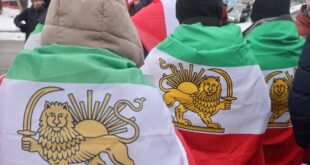Libya’s critics were furious at what they called a hasty and cynical rush for closer ties between the West and Muammar Qadhafi’s government after it freed six foreign medics in July.There was more anger when Qadhafi’s son Saif Al Islam said the six had been tortured to confess about infecting Libyan children with HIV – a remark a Libyan official source later insisted does not reflect the Tripoli government’s view.
But analysts say outrage over the affair, which saw a $460 million settlement for the children’s families, a French arms deal and a possible nuclear energy accord, is unlikely to upset an expected overall warming of Western business ties to Libya.
The commercial allure of the OPEC member, owner of Africa’s biggest oil reserves, looks set to trump other considerations as it emerges from decades of diplomatic isolation for what the West called its support of terrorism.
French President Nicolas Sarkozy, credited with helping win their release thanks to vigorous diplomacy, pointedly refused to show any sign of remorse over the French weapons deal.
“The Libyans will spend a few hundred thousand euros to make factories work in France. I should apologise for that?†he said.
Libya attracted no fewer than 60 firms from 25 countries to a presentation of a gas exploration licensing round last week.
It is not all about deals, some observers say.
More foreign contact, including participation in modernising the Soviet-style bureaucracy, could foster a more open economy and society after 37 years of rule by Qadhafi, who says his no-party system of popular rule beats ballot box democracy.
Plain speaking
“I expect things will calm down now,†said Oliver Miles, deputy chairman of the Libyan British Business Council, referring to human rights concerns over the apparent European haste to rebuild ties.
“A bit of plain speaking from Saif Al Islam I don’t think is going to weigh very much in the balance.†The medics, convicted of deliberately infecting Libyan children with HIV, were freed on July 24 after a deal between Tripoli and the EU ended their eight-year ordeal.
Their return to Bulgaria closed what Libya’s critics called a human rights scandal: The medics had at one point been condemned to death but have always said they were innocent and had been tortured to confess.
“Crime pays,†wrote Claude Moniquet of the Brussels-based European Strategic Intelligence and Security Centre.
“If tomorrow the Colonel [Qadhafi] decides he wants to receive the Nobel Peace Prize… or just to get our support for his bankrupt socialist regime, what will he invent next and whom will he take hostage?†The case has continuing legal ramifications. Bulgarian prosecutors are investigating Libyan officers who they believe tortured the five Bulgarian nurses and a Palestinian doctor.
But the proceedings are not expected to put a big obstacle in the way of Libya’s relations with the European Union, which says it expects to “further normalise†stalled ties.
Claire Spencer, of Britain’s Royal Institute of International Affairs, said: “There’s enough interest on both sides for the rapprochement to continue. There is a huge need for investment which companies are eager to supply.â€
“The argument is that it’s better to engage with Libya, and through engagement find some way to help reforms, rather than stand aside and let Qadhafi carry on in the usual way. And there is also the sense among the Europeans that ‘if we don’t get involved, then someone else will’.â€
Humanitarian support
Aside from medical help and humanitarian support for the HIV children, Tripoli was promised better access to the EU’s rich markets and EU help in key sectors such as education.
Libya has also been invited to participate in the creation of a so-called Mediterranean Union of States that would coordinate on migration, terrorism and economic development.
Ties with former foe Washington, too, are likely to warm, and one sign is a likely visit this year by top diplomat Condoleezza Rice, US officials said last month.
There are still disputes over final compensation for victims of the Pan Am 103 bombing over Lockerbie, Scotland, in 1988, and a 1986 attack on a West Berlin disco used by US servicemen.
Libyan visas can still be hard to get for Americans. But US businesses are pushing hard for Libya deals.
The Libya-US rapprochement “is reasonably healthy,†said Geoff Porter, a north Africa specialist at Eurasia group, which assess political risk for multinational corporations.
Defence is a priority sector for post-sanctions Libya.
“They are in desperate need of modernising their military,†said Dave Hartwell of Janes Information Group, which said Libya would be seeking helicopters and armoured personnel carriers.
“Libya is in a relatively weak position, certainly compared to its neighbours Egypt and Algeria, and whilst there is no external threat to Libya, Qadhafi sees himself and Libya as having a certain status in Africa.â€
 Eurasia Press & News
Eurasia Press & News



